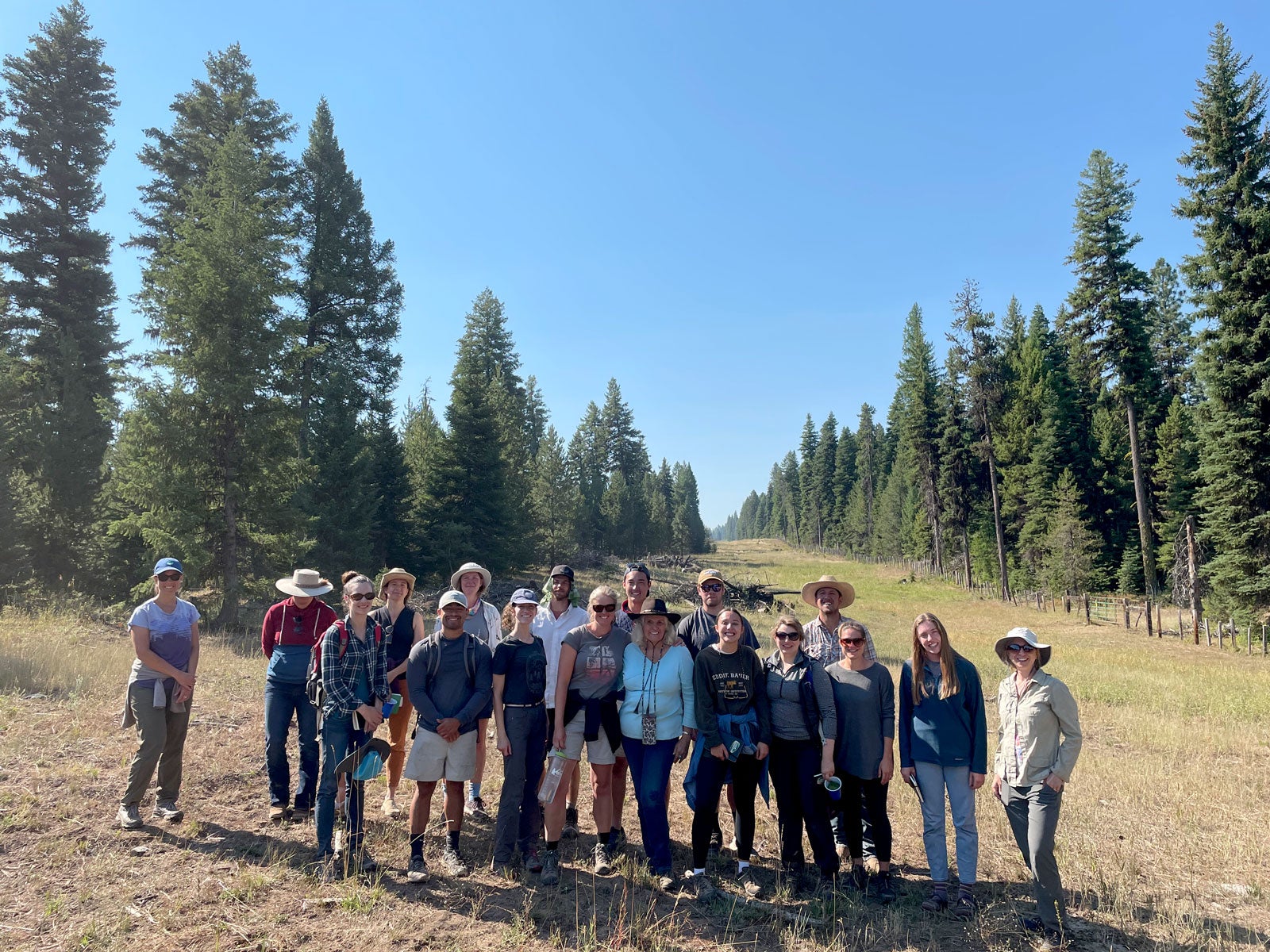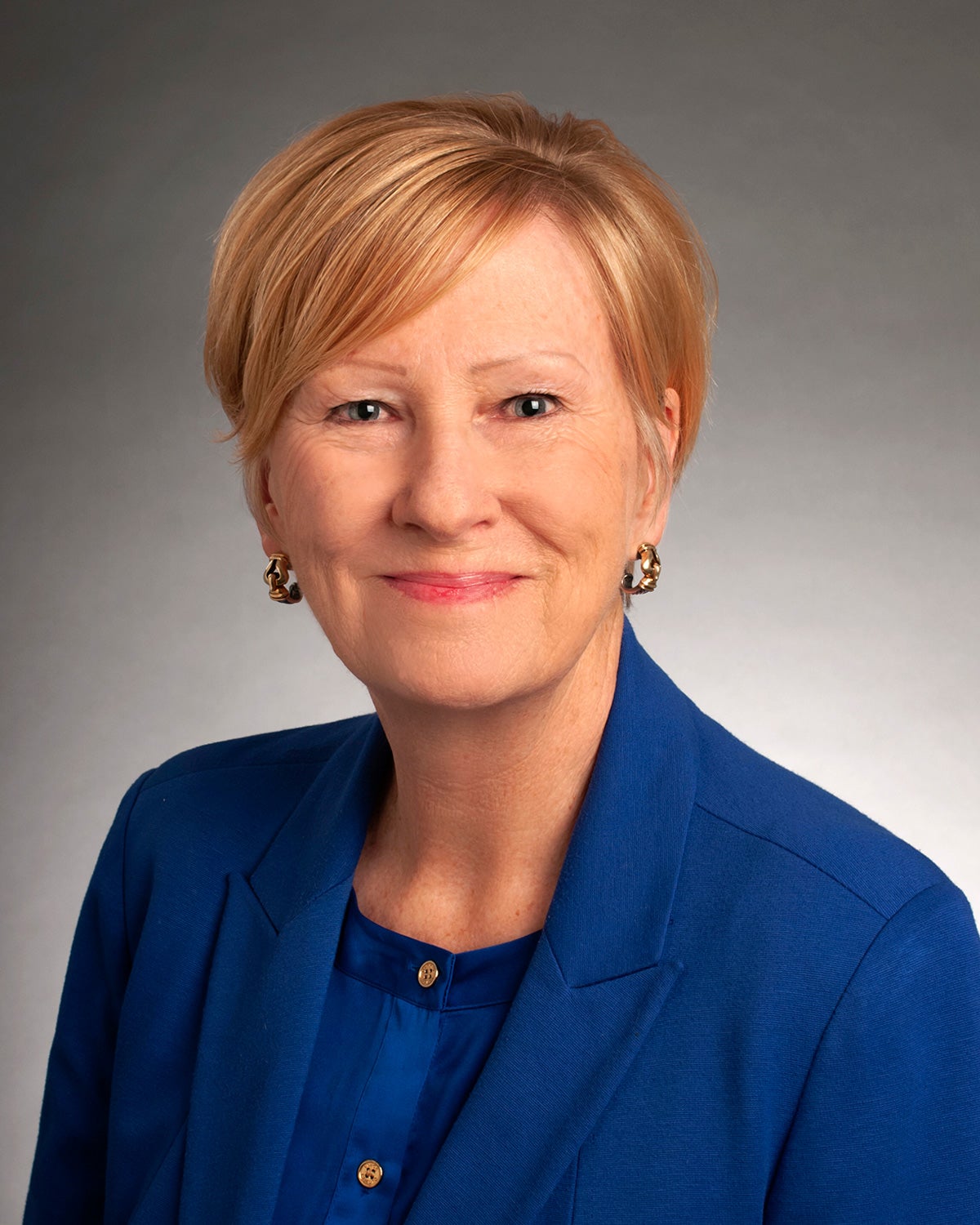
Bronco students get a look at environmental issues through each others’ eyes during pilot Field School experience.
Carol MacGregor’s all-terrain vehicle came to a stop in the clearing where, for the last few days, she had hosted a cohort of Boise State University students and faculty. Surrounding the site were tall trees, a gurgling stream and a circle of camping chairs where her guests heard her talk about her life as an academic, writer and rancher.
“We really need to encourage new leadership for cleaning up and preserving what we’ve got, and maintaining it for habitat, for wildlife, for grazing, for recreation,” MacGregor said. “My hidden agenda is that I want to expose young people of ambition and energy to the actual situations — to motivate them to take better care of it in the future.”
The clearing and other areas on MacGregor’s land near Cascade Reservoir in Valley County were the sites of the first-ever Working Lands Field School, which took place over five days in mid-August, 2021, three of which were spent on her land. As Boise State gears up to launch its School of the Environment, which will create a hub for disciplines and areas of study around the environment, the field school demonstrated the possibilities of interdisciplinary study and Boise State as a leader on environmental issues. A pilot project designed to build connections across academic disciplines, the field school also brought participants together with those who use the land for their livelihoods, fostering conversations and insights into resource management, conservation management, fire prevention, biology, history, law and more.
The field school attracted people from various disciplines, bringing faculty and students in from the School of Public Service, the College of Arts and Sciences, and Human-Environment Systems within the College of Innovation and Design. They came with myriad areas of expertise, including soil biology, geography, history, philosophy, botany, ecology, political science, public policy, biology and environmental studies.
Emily Wakild, a professor of history and the director of environmental studies at Boise State, as well as the driving force behind the organization and execution of the field school, said everyone has something to offer when it comes to conservation. Studying the use of the land while breaking down academic barriers helps students reach a new understanding of how to solve environmental problems.
“When you can think about the way ranchers know the land, you can understand their philosophical view in a different way. It’s the same with history, the legacy of how the landscape looks. It’s embedded in legal choices that were made generations before. By considering these choices collectively we learn with and from each other. Some of us here have had no interaction until we came up here.”
Emily WakildMake a Gift to the School of Public Service.
Inspired? Let's Chat!
-

Jennifer Neil, CFRE
Senior Executive Director of Development